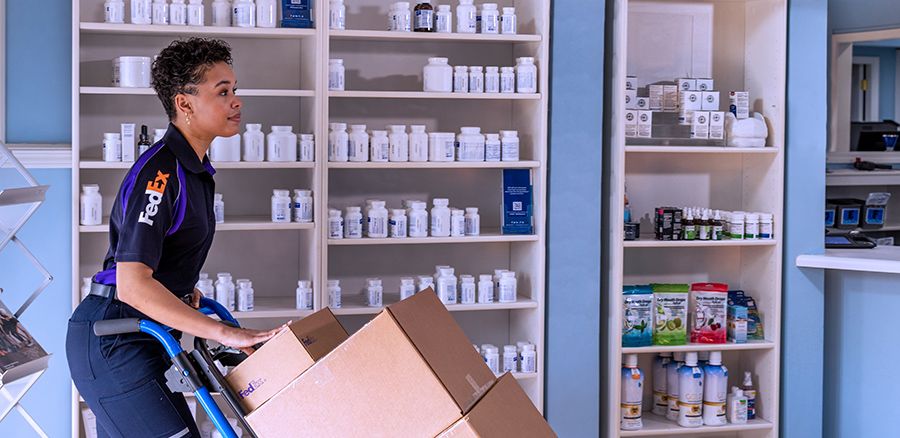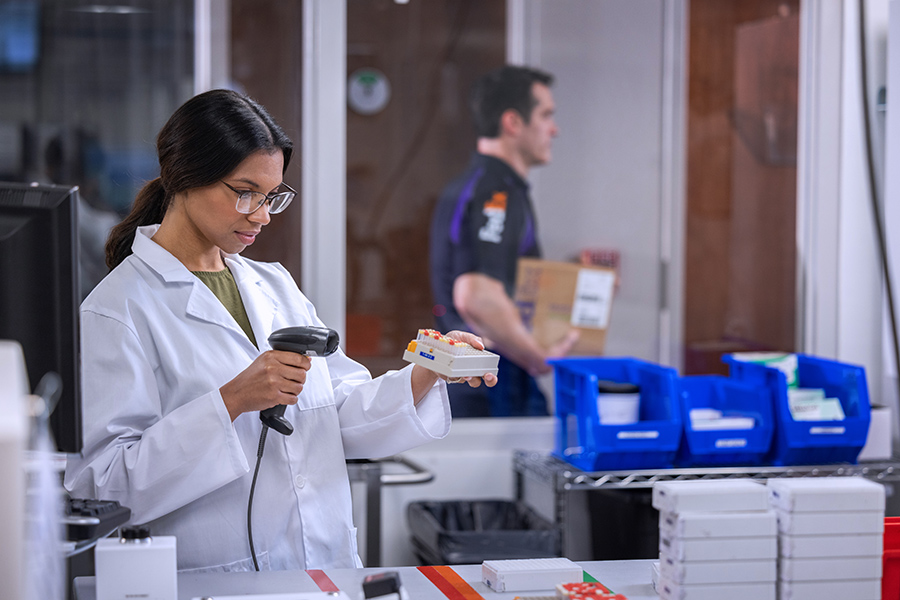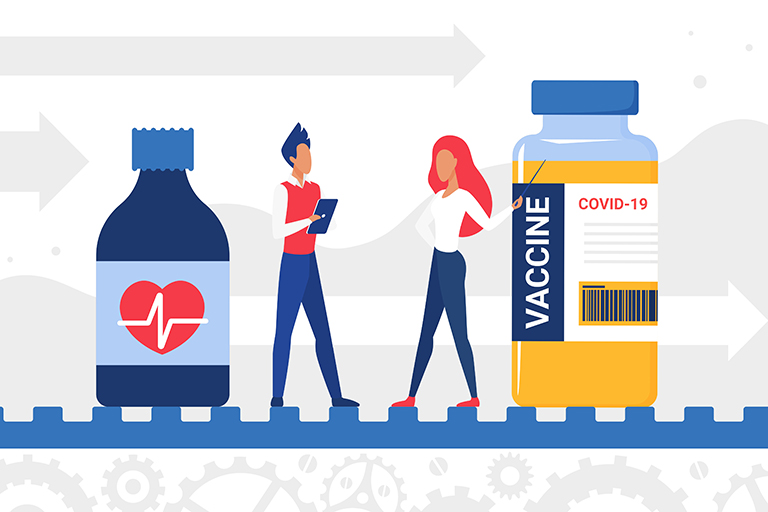How To Ship Pharmaceuticals In Asia
As Asia’s healthcare sector continues to grow, we explore the critical role of pharma supply chain intelligence in shipping pharmaceuticals and biologics in Asia and across the globe.
As technology advances at breakneck speed, Asia’s pharma supply chains are evolving – fast. Data-driven and built on smart tech, these next-generation supply chains are transforming to meet the needs of a dynamic healthcare industry.
In today’s digital marketplace - and in a post-COVID world - supply chains have shifted to become highly interconnected, competitive, and highly sophisticated. Now more than ever, investment in healthcare supply chains is becoming a strategic priority in Asia. To keep up with demand and optimize for success, healthcare and pharma companies need to unlock greater ‘supply chain intelligence.’
So, what is supply chain intelligence?
Put simply, it’s a key area of focus that empowers pharma business operators to better track their shipments through enhanced visibility of the entire supply chain. Real-time performance insights and end-to-end visibility mean healthcare businesses are better positioned to tackle global supply chain complexities.
In today’s digital marketplace - and in a post-COVID world - supply chains have shifted to become highly interconnected, competitive, and highly sophisticated. Now more than ever, investment in healthcare supply chains is becoming a strategic priority in Asia. To keep up with demand and optimize for success, healthcare and pharma companies need to unlock greater ‘supply chain intelligence.’
Supply chain intelligence - explained
So, what is supply chain intelligence?
Put simply, it’s a key area of focus that empowers pharma business operators to better track their shipments through enhanced visibility of the entire supply chain. Real-time performance insights and end-to-end visibility mean healthcare businesses are better positioned to tackle global supply chain complexities.

The role of supply chain intelligence in healthcare logistics
Logistics is the gateway for pharmaceutical companies to bring their products to a global marketplace with minimal risks. But managing a supply chain in healthcare is typically a complex and fragmented process.
Due to increasing competition, rising costs, government regulations, and demand for a higher quality of service, healthcare providers are under enormous pressure to deliver.
Given the diverse locations, mergers, multiple information systems and changing organizational structures across the globe, supply chain leaders in healthcare and pharma need to integrate the latest innovations. A strong technology-backed supply chain can provide deeper, better insights into transportation.
Complete visibility and real-time tracking
Pharma products such as vaccines, biopharmaceuticals and cell therapies need to be transported under stringent environmental conditions. Temperature, humidity, light exposure and other variables need to be tightly controlled.
That’s where supply chain intelligence comes in. Tracking and monitoring the ingredients from supplier to factory, and measuring temperature, time and location are all essential to delivering reliable data. A clear line of sight at every stage is critical.
This precise level of visibility and tracking helps supply chain leaders and healthcare providers to identify efficiencies and gaps that tie back to business profitability.

Supply chain intelligence relies on two types of data:
Across the Asia Pacific region, pharma shipping is big business. World-leading capabilities, including a highly developed cold-chain, storage and research and development network, enable Asia to grow at speed.
Mega-markets like China, Japan, India and South Korea are closely followed by developing markets in Southeast Asia – with standout growth forecasted in key areas such as oncology and precision medicine.
At the same time, Asia represents vastly different markets, geographies and levels of pharma intelligence expertise. What should your pharma business be considering when looking to optimize shipping to deliver best-in-class pharma product to customers?
Different logistics partners will offer different capabilities. For example, at FedEx, we can ship:
- Historical data helps supply chain providers to deploy optimal packaging designs and utilize cold storage facilities during transportation
- Real-time data analysis can flag specific shipments that require immediate intervention to recover products whose integrity is at risk of being compromised
How to ship pharmaceuticals in Asia
Across the Asia Pacific region, pharma shipping is big business. World-leading capabilities, including a highly developed cold-chain, storage and research and development network, enable Asia to grow at speed.
Mega-markets like China, Japan, India and South Korea are closely followed by developing markets in Southeast Asia – with standout growth forecasted in key areas such as oncology and precision medicine.
At the same time, Asia represents vastly different markets, geographies and levels of pharma intelligence expertise. What should your pharma business be considering when looking to optimize shipping to deliver best-in-class pharma product to customers?
1. Understand your options
Different logistics partners will offer different capabilities. For example, at FedEx, we can ship:
- Shelf-stable medicines and active ingredients
- Prescriptions, over-the-counter drugs, and supplements
- Vaccines, insulin, antibodies, gene therapies, and other biologics
- Clinical trial materials, stem cells, biological and tissue samples, and Investigational Medicinal Products (IMPs)
- Pharma API
- Complex medical equipment such as ultrasound, MRI machines, spare parts, PET and CT scanners, and X-ray machines
- Simpler medical supplies such as thermometers, tongue depressors, surgical masks and hypodermic needles
- Urgent backorders

2. Evaluate the capabilities of your provider
Understanding the level of supply chain intelligence your shipping partner can offer is critical. For example, for clinical trials and biopharma, our solution, FedEx Clinical Care, is a dedicated service for Asia Pacific. It ensures the safe, expedited delivery of irreplaceable samples and clinical trial materials across the region.
SenseAware technology – a FedEx innovation – monitors temperature, humidity, light exposure, shock events, and other environmental factors that can impact supply chain integrity. The combined multi-sensor device can gather, send and monitor data, enabling a comprehensive array of real-time tracking.
3. Decide on the speed and size of your service
Whether you’re shipping raw materials or finished products, your shipment journey will be determined by its shelf-life as well as the urgency with which it is required at its destination.
We offer a range of options, including those that balance cost and speed, non-stop expedited shipping, global freight for large volumes, and more.

Ongoing advancements in AI and big data can drive efficiency
Data and AI play pivotal roles in Supply Chain Management (SCM) and assist business operators to conduct real-time data analysis. Digitally-driven supply chain intelligence can help companies slash costs and increase customer satisfaction, combining data and analytics to draw out patterns and look into the future. SCM technologies will enhance operational and transactional efficiencies in manufacturing, sourcing, and distribution.
Supply chain intelligence technologies can integrate business intelligence with data from SCM systems, providing strategic information to decision-makers. By harnessing data and innovating with technology, manufacturers and logistics providers can customize solutions and close shortage gaps.
Technology can also mitigate risk
Automation will continue to improve. Automated tracking systems lessen the need for manual inventory management and considerably reduce drug wastage from expiration and spoilage. Facility personnel can be alerted proactively to the status of products in storage. With inventory data digitized, healthcare facilities can work faster, and with more accuracy. They’ll find it easier to meet accreditation and government regulation requirements.

Predictive analytics enable scientists to identify patterns and gaps, and suggest efficiencies, revenue opportunities, potential problems or competitive advantages. Real-time data can be processed by manufacturers and their supply chain vendors through descriptive analytics to reveal operations patterns.
Companies can forecast how their supply chain may evolve and develop risk-mitigation strategies to fix identified weaknesses.
The future of the healthcare industry will be global and borderless. The biopharmaceutical boom in Asia calls for the adoption of new technologies and higher-quality cold chain services. We will continue to identify innovative ways to provide the visibility required by customers throughout the supply chain.
Seeking solutions and services for your healthcare shipments? Learn more about FedEx Healthcare Priority and contact your local healthcare specialists directly here.
Companies can forecast how their supply chain may evolve and develop risk-mitigation strategies to fix identified weaknesses.
Logistics can drive the development of healthcare industry supply chain
The future of the healthcare industry will be global and borderless. The biopharmaceutical boom in Asia calls for the adoption of new technologies and higher-quality cold chain services. We will continue to identify innovative ways to provide the visibility required by customers throughout the supply chain.
Seeking solutions and services for your healthcare shipments? Learn more about FedEx Healthcare Priority and contact your local healthcare specialists directly here.
***

















 The Latest
The Latest